Navigating the complexities of family law can feel overwhelming, especially when it diverges from traditional norms. I’ve seen firsthand how divergent family law addresses unique family structures and relationships, providing tailored solutions that reflect today’s evolving society. This area of law isn’t just about legal frameworks; it’s about understanding the diverse needs of families that don’t fit the conventional mold.
As society progresses, so do the dynamics of family life. Whether it’s blended families, same-sex partnerships, or co-parenting arrangements, divergent family law offers a fresh perspective on legal rights and responsibilities. In this article, I’ll explore the key concepts and implications of this innovative approach, shedding light on how it can empower families to navigate their unique challenges with confidence.
Key Takeaways
- Definition and Scope: Divergent family law addresses the unique legal needs of non-traditional family structures, including blended families, same-sex partnerships, and co-parenting arrangements.
- Emphasis on Collaboration: This area of family law prioritizes collaborative approaches, such as mediation and arbitration, fostering better communication and minimizing adversarial legal disputes.
- Historical Evolution: Divergent family law has evolved alongside societal changes, driven by movements advocating for women’s rights and LGBTQ+ recognition, reshaping legal frameworks to be more inclusive.
- Customized Legal Solutions: Unique legal frameworks within divergent family law provide tailored solutions for complex issues such as child custody and support, reflecting the specific needs of diverse family configurations.
- Influential Case Studies: Landmark cases like Obergefell v. Hodges have set precedents, reinforcing equal rights and recognition for various family forms, influencing future legal interpretations.
- Societal Impact: Divergent family law promotes social equality by validating diverse family structures, enhancing acceptance, and ensuring equitable treatment under the law, ultimately transforming public policy.
Divergent Family Law
Divergent family law addresses the legal needs of non-traditional family structures. This branch of law recognizes the diverse forms families can take, including blended families, same-sex partnerships, and co-parenting arrangements. It’s designed to offer customized legal solutions that reflect the realities of modern family dynamics.
Divergent family law encompasses various aspects, such as child custody, support arrangements, and property distribution. Each element is tailored to fit the unique circumstances of the family unit involved. For instance, custody agreements may consider the relationships among all caregivers, rather than only biological parents.
Additionally, divergent family law emphasizes collaboration over adversarial legal processes. Alternative dispute resolution methods, like mediation and arbitration, often play a significant role. These approaches foster constructive communication among family members, which can lead to agreements that serve the best interests of the children involved.
The implications of divergent family law extend to social policies and legal reform. Its principles challenge traditional norms, promoting inclusivity and adaptability within the legal framework. As societal attitudes evolve, divergent family law adapts to ensure all family structures receive equitable legal recognition and protections.
Divergent family law reflects the complexity of contemporary family life, prioritizing individualized solutions to meet the needs of diverse family configurations.
Historical Context of Family Law
Family law has evolved significantly, reflecting societal changes and the emergence of diverse family structures. The development of divergent family law highlights this transformation, ensuring legal practices align with contemporary needs.
Early Developments
Early family law primarily focused on traditional marriage structures and rigid gender roles. Ancient legal codes, like the Code of Hammurabi (circa 1754 BC), outlined family rights concerning marriage, divorce, and inheritance. In many cultures, familial obligations were dictated by patriarchal norms, placing women in subordinate positions. This foundation laid the groundwork for modern family law, but it lacked the flexibility to accommodate non-traditional family dynamics.
Changes Over Time
Changes in societal attitudes during the 20th and 21st centuries significantly impacted family law. The women’s rights movement and LGBTQ+ advocacy spurred legal reforms, recognizing various family forms beyond the traditional marriage model. Key milestones, including the legalization of same-sex marriage in numerous jurisdictions, reshaped family law, paving the way for inclusive legal frameworks. Laws addressing child custody and support increasingly reflected shared parenting practices and co-parenting arrangements, moving away from adversarial approaches. Legislative acts, such as the Uniform Parentage Act, emerged to clarify rights for non-traditional families and foster a more equitable legal landscape.
Key Principles of Divergent Family Law
Divergent family law focuses on accommodating diverse family structures. It emphasizes individualized solutions that recognize the unique circumstances of modern family dynamics.
Differentiation from Traditional Family Law
Divergent family law diverges significantly from traditional family law in its approach and application. Traditional family law often relies on rigid definitions and norms, placing primary emphasis on marriage and nuclear families. In contrast, divergent family law embraces an expansive view of family, prioritizing needs of varied family units, such as blended families and same-sex partnerships. This branch of law facilitates more flexible arrangements for child custody, support, and property distribution, allowing courts to craft solutions that reflect the realities of the family. The focus on collaboration and mediation reduces adversarial disputes, fostering better communication among family members.
Unique Legal Frameworks
Unique legal frameworks underpin divergent family law, offering tailored solutions that accommodate different family structures. These frameworks include laws specifically addressing co-parenting arrangements, multi-parent households, and shared custody agreements. For instance, the Uniform Parentage Act provides a comprehensive approach to establishing parental rights for all family forms, regardless of marital status. Other innovative solutions include collaborative divorce processes, which allow families to negotiate terms amicably rather than through litigation. By centering on the distinct needs of non-traditional families, these frameworks promote inclusivity and equity while addressing complex issues that arise in contemporary family life.
Case Studies in Divergent Family Law
Divergent family law exhibits unique applications across different contexts. Case studies highlight the significance of tailored legal solutions for diverse family structures.
International Perspectives
International family law illustrates varying approaches to divergent family law. Countries like Canada and Australia implement inclusive measures for same-sex couples and co-parenting arrangements, ensuring equal recognition and rights. In Canada, the Family Law Act addresses diverse family dynamics, incorporating same-sex parenting options and surrogacy. In Australia, the Family Court emphasizes shared parental responsibility, accommodating blended families and non-traditional partnerships. Meanwhile, the European Union endorses principles promoting family unity, transcending traditional definitions and supporting multicultural family structures.
Notable Cases
Notable cases often set precedents in divergent family law, reflecting evolving societal norms.
- Obergefell v. Hodges (2015): This landmark U.S. Supreme Court case legalized same-sex marriage nationwide, reinforcing equal rights in family law.
- M.T. v. J.T. (1976): In this New Jersey case, the court ruled in favor of a lesbian mother, recognizing her parental rights despite societal biases.
- Pickett v. Brown (2016): This case highlighted the benefits of mediation in resolving child custody disputes, demonstrating successful co-parenting arrangements outside traditional litigation.
These cases significantly influence how divergent family law adapts to contemporary family dynamics, serving as influential examples for future legal interpretations and reforms.
Impact on Society and Individuals
Divergent family law significantly shapes societal attitudes and individual experiences. It recognizes and validates the diverse forms of family structures, facilitating greater acceptance of non-traditional arrangements. This legal recognition promotes social equality by ensuring all families, regardless of composition, receive equitable treatment under the law.
Individuals benefit from tailored legal solutions that address their specific needs. Customized arrangements for child custody, support, and property distribution provide stability during transitions, minimizing conflict. Mediation and alternative dispute resolution methods encourage constructive dialogue between family members, leading to healthier long-term relationships.
The evolving legal landscape fosters inclusivity, challenging outdated norms. Legislative reforms reflect changing societal values, paving the way for diverse family forms to find legal protections. As acceptance grows, non-traditional families gain enhanced recognition, affirming their rights and responsibilities within the community.
Public policy evolves in tandem with divergent family law, reflecting the complexities of contemporary family life. Initiatives aimed at supporting diverse family models contribute to societal welfare, acknowledging the variety of family experiences. Educational programs raise awareness about the implications of these legal changes, encouraging a more informed understanding of non-traditional families.
Divergent family law positively impacts society and individuals by fostering acceptance, encouraging tailored solutions, and transforming public policy to reflect the diversity of family structures. This approach promotes healthier family dynamics and strengthens the legal framework supporting modern family life.
Family Dynamics
Divergent family law is reshaping how we view and navigate family dynamics in today’s society. By acknowledging the diverse structures that exist, it provides essential legal frameworks that adapt to individual needs. This approach not only fosters healthier relationships but also promotes inclusivity and equity.
As I reflect on the evolution of family law, I see a promising shift toward recognizing the complexities of modern family life. The emphasis on collaboration and tailored solutions empowers families to find resolutions that work for them. With ongoing legal reforms and societal changes, I’m optimistic about the future of family law and its ability to support all families in their unique journeys.



